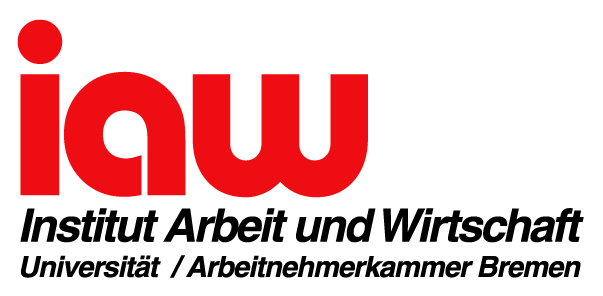THE INSTITUTE
The Institute Labour and Economy (iaw) was founded in 2001 under the joint sponsorship of the University of Bremen and the Bremen Chamber of Labour. Since then the institute has been taking the perspective of workers and looking for opportunities to shape increasingly complex societies.The focus of all activities at the iaw lies on the working and living conditions of workers. From this perspective, the iaw participates in discussions on shaping the economy and society. The iaw also disseminates its scientific findings and offers scientific services. In particular, the iaw combines basic and applied research through pilot projects and cooperations with firms. The substantive work at the iaw is conducted in three research units:
- Institutional Change in Work, Employment and Society
- Perspectives for Sustainable Employability
- Regional Development and Fiscal Policy
In order to better integrate the research processes and projects, to connect with relevant academic debates and to work on common questions across departments, the iaw is now orienting its work around three research perspectives: Governance, Sustainability and Transformation.
The research perspective “Governance forms in the economy, labour and cities/regions” is already an established “Key Topic” and involves questions resulting from the deep-reaching change in societal forms of managing, regulating and coordinating action. With the “Sustainability” perspective we not only focus on the ecological but also on the social and economic transformation of society and investigate its consequences for the employment system and “work” as a key factor affecting (re-)production and integration. “Transformation” is understood broadly and combines the previous two research perspectives in the question of the extent to which the changes precipitated by, among other things, sustainability strategies but also developments such as digitisation and globalisation can unfold radical change or transformatory societal potential.
The iaw’s work encompasses a broad spectrum of basic research, applied research, knowledge transfer and scientific consultancy (regional studies, expert opinions, evaluations etc.).
We can now look back on 50 years of cooperation between the University of Bremen and the Chamber of Labour.




